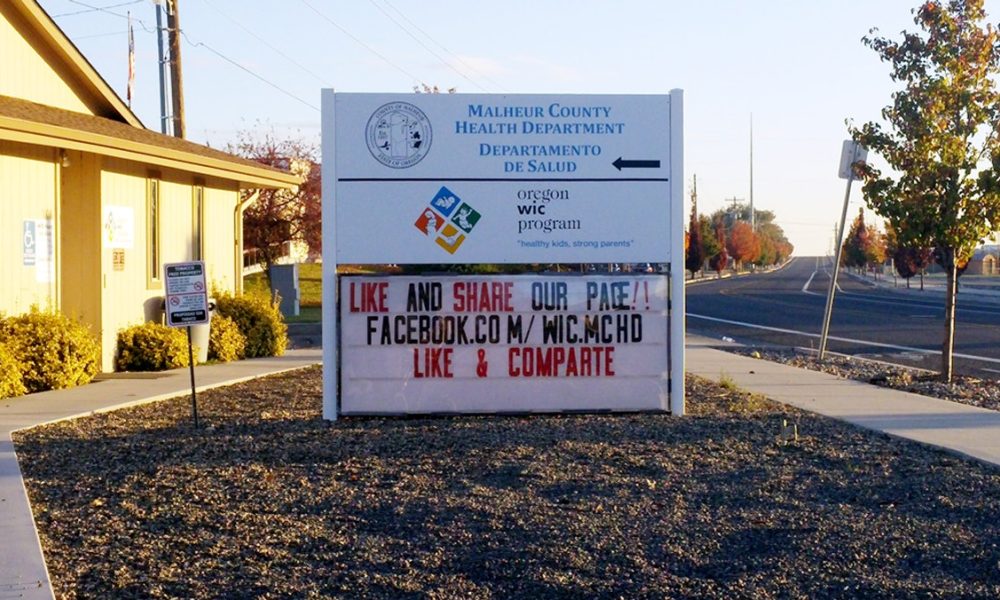
ONTARIO — The Malheur County Health Department has started a needle exchange in an effort to address the county’s high rates of hepatitis C.
Hepatitis C virus, which causes liver disease, is a public health issue throughout Oregon. According to the Oregon Health Authority, the state has the highest mortality rate associated with the hepatitis C virus in the country. In Malheur County, cases of the virus increased by 46% from 2012 to 2017.
The virus is spread through blood and most new cases are due to drug users sharing needles, according to the federal Centers for Disease Control and Prevention. The application requesting funding from the Oregon Health Authority states “people who inject drugs have an increased risk of getting and transmitting HIV, viral hepatitis and other blood borne infections by sharing and re-using dirty needles and syringes,” which is why Malheur County is joining 10 other Oregon counties in providing syringe services.
The needle exchange allows anyone to go to the health department and exchange used needles for clean needles with no questions asked.
“I understand some hesitation, but I think it’s misinformation,” Sarah Poe, director of Malheur County Health Department, said about public perception of needle exchanges. “It’s the same fears that come from providing birth control to people who are already sexually active.”
According to the funding application, written program coordinator Rebecca Stricker, “Access to sterile needles reduces the need to share needles with others, and having a safe place to dispose of needles decreases the risk of becoming infected with a potentially life-threatening disease.”
Stricker explained that the most effective needle exchanges meet the population of intravenous drug users where they are. Because people already come into the health department to get tested for viruses, Stricker said it’s a prime place to offer clean syringes to people who inject drugs.
“That’s why it will work here, because we already have access to the population,” Stricker said.
Stricker noted that while the syringe program is a harm reduction measure, it is also a gateway to building a more trusting relationship with intravenous drug users, as well as a way to provide education on other services through the health department.
[ KEEP YOUR LOCAL NEWS STRONG – SUBSCRIBE ]
For example, if an intravenous drug user wants to treat an addiction but doesn’t have access to health insurance, they might not think entering a rehab program is a possibility for them. But, if they go to the health department to exchange their needles, the staff can educate that person on the free and low-cost programs available to them.
“My biggest driving factor is being able to have that relationship,” Sticker said.
In addition to providing clean syringes, the state grant and other funding totaling $6,235 will go towards placing sharps boxes – metal boxes for syringe litter – near syringe litter hotspots in the county.
“Some (hotspots) tend to be near public places like parks, which makes it a real concern for families trying to use public spaces,” Poe said.
At the moment, there are no services within 100 miles of Ontario that collect and dispose of needles and syringes for free. Some local pharmacies like Bi-Mart accept sharps containers, but customers must buy the container and pay a $5 disposal fee.
“There are people in the community who can’t afford to properly dispose of needles,” said Stricker, which is why it’s a priority to provide those services for free.
“It’s a big deal that we didn’t have any of these drop boxes before,” Poe said.
The health department is contracting a local welder to make at least four sharps boxes that should be in place by the end of fall.
While the funding only lasts through the end of the year, Poe says that this is only the beginning of an ongoing effort. The Oregon Health Authority funding assists the county with the upfront costs of starting an exchange program, but taking over the maintenance costs will not be an issue for the health department.
The needle exchange is one way to tackle hep C rates, as well as intravenous drug use, within the community.
“There are so many arms to this,” Stricker said.
“I only see this getting bigger,” Poe said about the effort to lower hep C rates in the county. “Everyone who works here is so committed to this issue.”
CLARIFICATION: The $6,235 in funding for Malheur County’s needle exchange program came from several sources. An earlier version of this story was not clear on that.
CORRECTION: A state grant application submitted by Malheur County was prepared by Rebecca Stricker. An earlier version of this story incorrectly stated that Sarah Poe also helped in its preparation. The Enterprise apologizes for the error.




